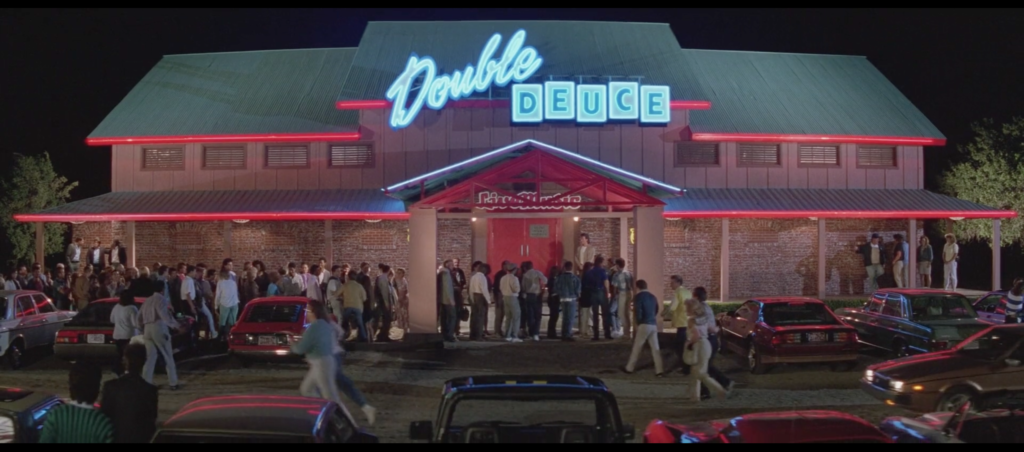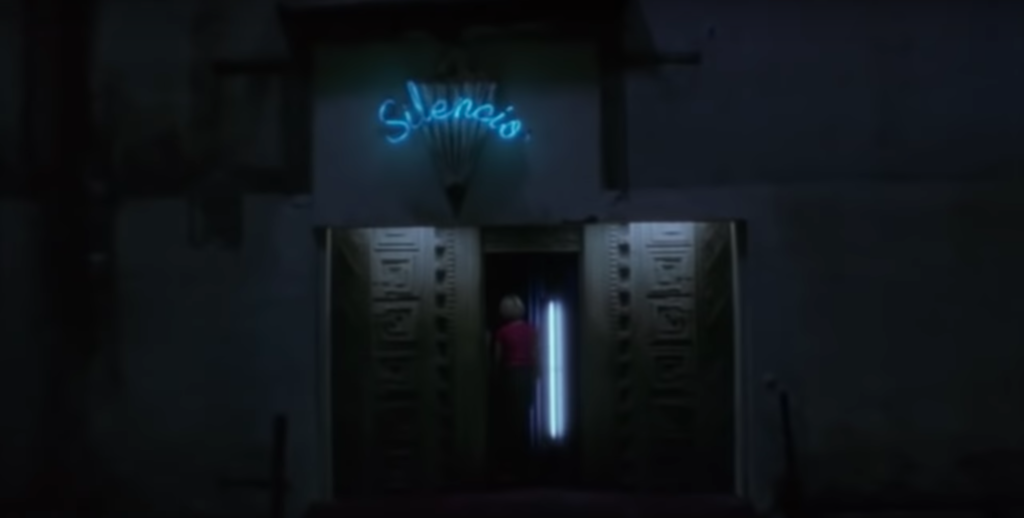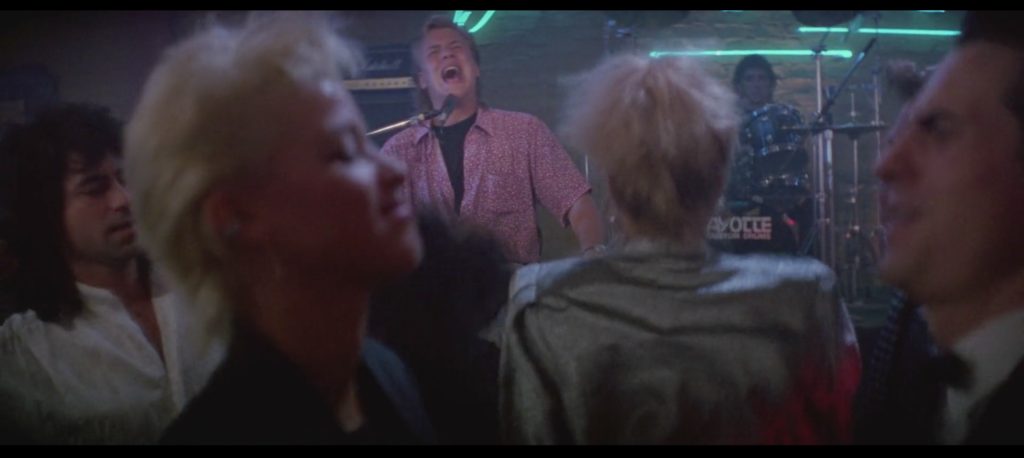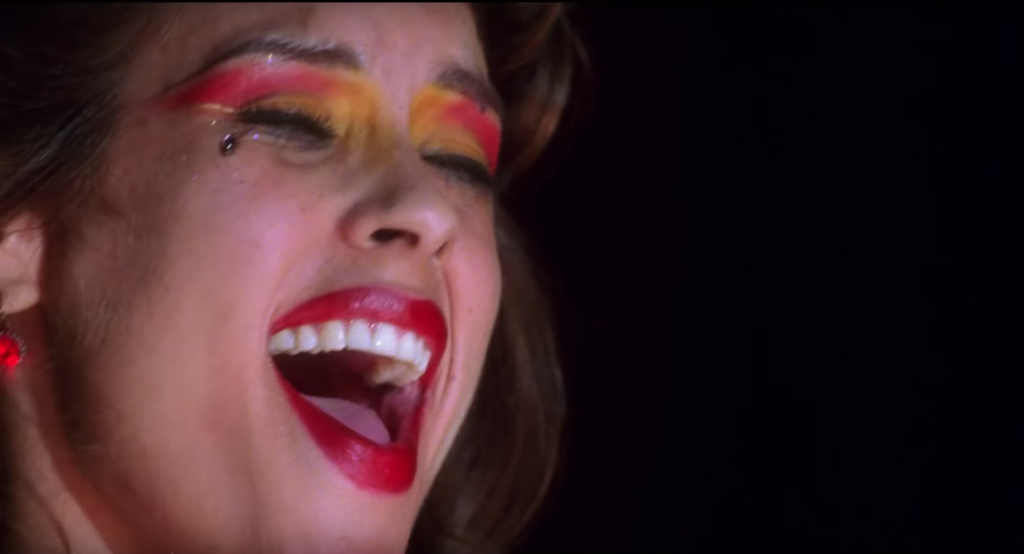Essays connect. That is the fundamental aspiration of my writing in the form. Analogy, applicability, juxtaposition, recontextualization, “yes, and…”: When I’ve succeeded as an essayist it’s in using these techniques to draw meaning from the spaces between elements according to the order into which, after plucking them from their preexisting positions, I have arranged them. Essays are cohesive statements, derived from montage.
Every Road House/Mulholland Drive post I’ve put together since the idea first came to me has taken at least as much effort as writing a post does, sometimes more. I say this because I don’t want you to think these are a shortcut or a cheat, though you may anyway, or a joke, which if you know me seems somewhat less likely than the shortcut/cheat possibility. But it’s semantics, really. Even when I’m joking around in here I’m serious.
It may seem, it may be, funny to compare one of the great films ever made to one of the great bad films ever made. But even if it is, my brain doesn’t know it. After the connection first occurred to me I haven’t been able to get it out of my mind. When this kind of fire starts, it is very hard to put out.
Both movies are about a beautiful person who is new in town, who discovers love and sex with a beautiful woman with a dangerous past, who unearths corruption and violence under the surface of their new home, who dazzles onlookers with their talent, whose performance in their chosen role are echoed by the performers at the blue-neon nightclub they visit, who are threatened with annihilation by their inability to align the person they purport to be with the person they are. They retell the same myth about self-discovery and self-actualization, the great myth of the West.
Mulholland Drive destroys that myth in the end. Road House does not. Yet Mulholland Drive also lives the myth for the bulk of its length before shattering it. Perhaps Road House is best understood, then, as the adventures Betty and Rita to the Diane and Camilla death dance of our own real lives. It is the eject button, the escape hatch, the panic room for which an overwhelmed mind can reach before it destroys itself. No hay banda! It’s all a tape. Il n’est pas de orquestra! It is an illusion. Listen…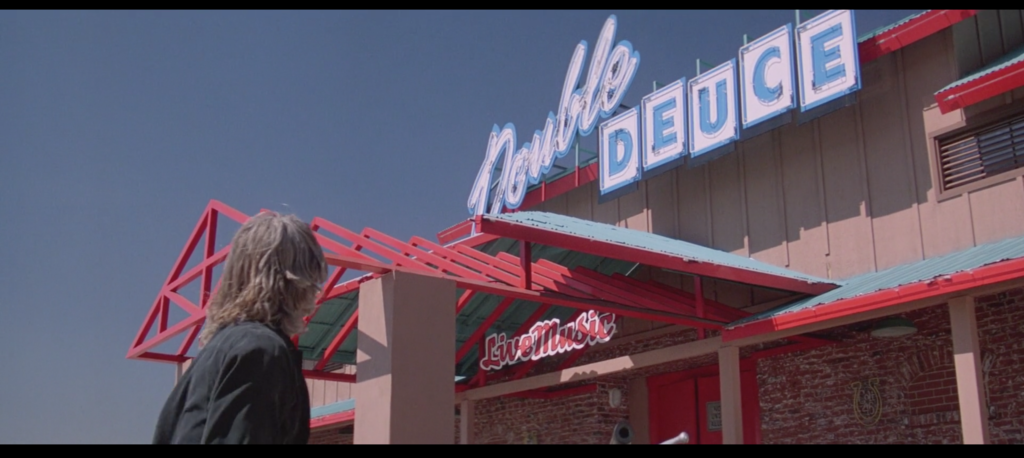
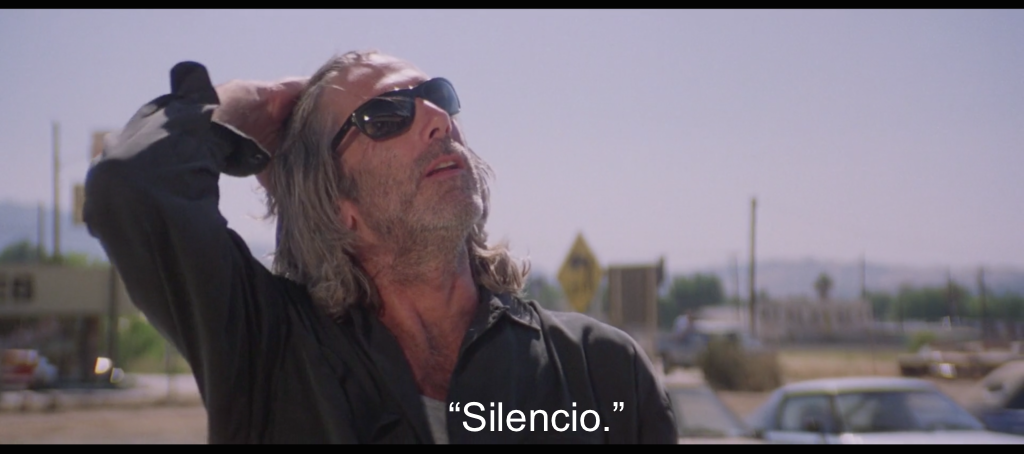
Tags: david lynch, llorando, mulholland drive, road house

